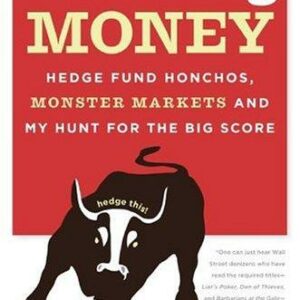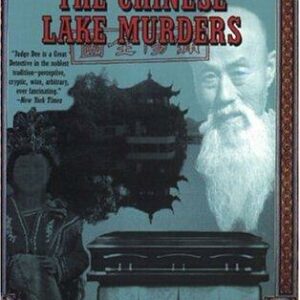The World Remade
$23.00
| Title | Range | Discount |
|---|---|---|
| Trade Discount | 5 + | 25% |
- Description
- Additional information
Description
A bracing, indispensable account of America’s epoch-defining involvement in the Great War, rich with fresh insights into the key issues, events, and personalities of the period
After years of bitter debate, the United States declared war on Imperial Germany on April 6, 1917, plunging the country into the savage European conflict that would redraw the map of the continent—and the globe. The World Remade is an engrossing chronicle of America’s pivotal, still controversial intervention into World War I, encompassing the tumultuous politics and towering historical figures that defined the era and forged the future. When it declared war, the United States was the youngest of the major powers and militarily the weakest by far. On November 11, 1918, when the fighting stopped, it was not only the richest country on earth but the mightiest.
With the mercurial, autocratic President Woodrow Wilson as a primary focus, G. J. Meyer takes readers from the heated deliberations over U.S. involvement, through the provocations and manipulations that drew us into the fight, to the battlefield itself and the shattering aftermath of the struggle. America’s entry into the Great War helped make possible the defeat of Germany that had eluded Britain, France, Russia, and Italy in three and a half years of horrendous carnage. Victory, in turn, led to a peace treaty so ill-conceived, so vindictive, that the world was put on the road to an even bloodier confrontation a mere twenty years later.
On the home front, Meyer recounts the break-up of traditional class structures, the rise of the progressive and labor movements, the wave of anti-German hysteria, and the explosive expansion of both the economy and federal power, including shocking suspensions of constitutional protections that planted the seeds of today’s national security state. Here also are revealing portraits of Theodore Roosevelt, Henry Cabot Lodge, Robert La Follette, Eugene Debs, and John J. “Black Jack” Pershing, among others, as well as European leaders such as “Welsh Wizard” David Lloyd George of Britain, “Tiger” Georges Clemenceau of France, and Kaiser Wilhelm II of Germany.
Meyer interweaves the many strands of his story into a gripping narrative that casts new light on one of the darkest, most forgotten corners of U.S. history. In the grand tradition of his earlier work A World Undone—which centered on the European perspective—The World Remade adds a new, uniquely American dimension to our understanding of the seminal conflict of the twentieth century.
Praise for The World Remade
“[G. J.] Meyer offers wonderful insights into many of the key players in this arresting saga . . . one that should be read to understand our emergence as a global power.”—Booklist (starred review)
“Meyer gives a good sense of America’s future at that negotiating table and Wilson’s celebrated role at Versailles as the leader of the free world. . . . A refreshing look at this still-much-debated world debacle.”—Kirkus Reviews
“Characters come alive and the past seems near. . . . Meyer succeeds brilliantly with his basic narrative approach, and any reader who wants to learn about American participation in the war will benefit from this book.”—Publishers Weekly
“This book is well written, sharp, and has bearing on our present and future involvement in wars. A+”—Seattle Book Review
“This lengthy revisionist history will fit well with American history and governmental studies departments in both public and academic libraries.”—Library Journal “A massive and ambitious effort that strives to cover and explain a very broad range of aspects, including our entry and participation in the [World War I], the failure of the ‘peace,’ and the changes the war brought to our political and social fabric. [G. J.] Meyer offers wonderful insights into many of the key players in this arresting saga. . . . This is a provocative and sometimes harshly judgmental history, but one that should be read to understand our emergence as a global power.”—Booklist (starred review)
“[Meyer] debunks many myths about America’s valiant intentions in joining the war, especially regarding President Woodrow Wilson’s sense of destiny on the world stage, and he closely examines why Wilson acquiesced to joining the fight. . . . Meyer gives a good sense of America’s future at that negotiating table and Wilson’s celebrated role at Versailles as the leader of the free world. . . . A refreshing look at this still-much-debated world debacle.”—Kirkus Reviews
“Here, with great skill and fidelity to fact, Meyer . . . relate[s] the complex tale of a nation venturing back into world affairs after a century of comparative isolation. . . . Meyer tells the story with brio. Characters come alive and the past seems near. . . . Meyer succeeds brilliantly with his basic narrative approach, and any reader who wants to learn about American participation in the war will benefit from this book.”—Publishers Weekly
“G. J. Meyer has written a keen observation about a historic and troubling period. This opus spans the war years, reflecting the [United States’] emergence as a global power while the other countries fought a war of attrition. Wilson is painted first as a complicated man who could be a sharp politician, then as a sick, indecisive man looking for validation. This book is well written, sharp, and has bearing on our present and future involvement in wars. A+”—Seattle Book Review
“Superbly well-written and deftly organized . . . [a valuable addition] to the literature of America and the First World War . . . that will challenge readers to think or rethink their ideas about the subject and its significance for understanding our present predicaments.”—The Common Reader
“This lengthy revisionist history will fit well with American history and governmental studies departments in both public and academic libraries.”—Library Journal G. J. Meyer is the author of three popular histories: A World Undone: The Story of the Great War; The Tudors: The Complete Story of England’s Most Notorious Dynasty; and The Borgias: The Hidden History. Meyer received a Nieman Fellowship in Journalism from Harvard University. He earned an M.A. from the University of Minnesota, where he was a Woodrow Wilson Fellow, and has taught writing and literature at colleges in Des Moines, St. Louis, and New York. He now lives in Wiltshire, England.Chapter 1
December 1918: Apotheosis
It was deliverance.
It was like being born again—albeit after an unspeakably difficult birth—free to start over and get it right this time.
It was the end of a nightmare that had threatened never to end, and the beginning, everyone desperately wanted to believe, of a new and permanently better world.
It was peace.
It was victory.
And it was Paris—Paris!—with the year’s climactic holiday less than two weeks in the future. After four dark, grim, clenched-teeth Christmases spent under the shadow of the apocalypse, the City of Light was free again to be itself, ablaze with the celebration of life.
There was much to grieve, yes—a terrible burden of grief, the incomprehensible sum of something like nine million fighting men dead along with a like number of civilians, plus survivors beyond numbering too broken ever to be put together again. France had suffered as much as any country and more than most, the war having taken nearly 3.5 percent of her population, one of every four men between the ages of eighteen and thirty. But a dozen other nations were similarly bereaved. From Portugal to the Russian steppe, men were learning to live without a limb or all their limbs. And learning to live with the compulsive twitching and trembling that were among the mysterious symptoms of shell shock, a new kind of affliction the name of which reflected ignorance of its causes. Men without eyes were being taught to weave baskets.
But the worst was over. In western Europe at least, the bloodletting had stopped. There were no more enemy armies just beyond the horizon, pressing to break through. There was no need to fear that those enemies might soon be marching in triumph down the Champs-Élysées. Such nightmare visions belonged to the past.
And upon this reborn Paris there now descended the man who had saved it, Thomas Woodrow Wilson, president of the United States. He arrived like a god, the first serving president ever to cross the Atlantic, borne on a great liner that, as it approached the port of Brest, passed through an honor guard of nine of his navy’s battleships, twenty of its destroyers, and like numbers of French and British warships.
(That liner, by the way, was herself a symbol of conquest and of new beginnings. Christened the George Washington when launched by her German builders, she was the third largest passenger ship in the world and at the start of the war ranked as Germany’s finest. She had happened to be in New York harbor when war broke out in August 1914, was unable to return home because Britain’s Royal Navy controlled the North Atlantic, and was impounded when the United States declared war on Germany in 1917. She was in every way perfect for this glorious mission.)
The harbor at Brest overflowed with rapturous crowds as Wilson’s ship approached her berth. Bands played, cannons boomed. And then that night, all along the route of the special train that carried the president and his wife and their entourage through cities and towns and country crossroads to Paris, people of every age and description came down to the tracks to see their deliverer go rumbling by. Some of them knelt, in attitudes of prayer.
It is said that two million people thronged the streets of the capital the morning of the president’s arrival. Even those old enough to remember the pomp of Napoleon III’s reign said it paled in comparison with this. The Gare de Luxembourg was turned into the world’s biggest flower basket, strains of “The Star-Spangled Banner” filled the air, and crowds cheered and laughed and wept. The Tiger was there, of course: Prime Minister Georges Clemenceau, an old man so combative, so rich in enemies, that he would never have been given the premiership if the only alternative had not appeared to be peace on Germany’s terms. The man who, upon taking office, had declared that his only foreign policy was to make war and his only domestic policy was the same. His short, plump body, round bald pate, and fat white mustache were unmistakable to all who caught a glimpse of him. He was joined by a less striking figure, President Raymond Poincaré, taller and almost slender by comparison, elegantly goateed. The two despised each other and made no secret of it. They had come together not just to welcome the American but to bask in the glow of his glory.
The beaming Wilson, slim and dapper and handsome in a way both boyish and austere, rested and at ease after nine days on calm seas, was led to a horse-drawn open carriage and joined there by Poincaré. The pert and pretty Edith Galt Wilson followed in a second carriage with Madame Poincaré. The two chiefs of state and their ladies formed the centerpiece of a grand procession. Led by a regiment of cavalry in full regalia, it made its slow way through the Place de la Concorde, past the statue representing the provinces of Alsace and Lorraine from which a black shroud had recently been removed to mark their recovery from Germany, up a Champs-Élysées lined with captured German guns to the Arc de Triomphe. The carriages soon filled with thrown flowers. The multitudes roared as again and again Wilson raised his silk top hat.
Huge banners were everywhere. Vive Wilson, they declared. Vive l’Amérique. Wilson le Juste.
The Wilsons were delivered at last to the Murat Palace, which was to serve as their residence during the short time they expected to be in France. They were given a quick tour by its owner, Prince Joachim Napoleon Murat, descendant of one of Napoleon I’s great marshals and the emperor’s sister Caroline. In size the palace rivaled the White House, with more privacy thanks to the high walls surrounding its wide gardens and an infinitely more exquisite interior. Meanwhile the president’s retinue, including the teams of scholars and experts who had been brought along to help him put the world right, was moving into the magnificent Hôtel de Crillon, adjacent to the American embassy. Everything possible was being done to make them happy to be in Paris, to show them that they were among friends.
By early afternoon Wilson was settled in the splendid study adjacent to his equally splendid bedroom on the palace’s upper floor. No one was with him except the only man he wanted with him, wily little Edward House, not only his closest confidant but nearly his alter ego. “My second personality,” Wilson called him, “my independent self: his thoughts and mine are one.” House had been in Europe since October, known to all as the president’s personal representative, explaining his objectives and gathering information on his behalf. He called himself “Colonel” and expected to be addressed as such, although he had never served in any army. He said it was a geographic rather than a military title, having been conferred on him by a governor of his native Texas.
House and the president had much to discuss. First were the preparations for the peace conference that was soon to begin, and that had brought Wilson to Europe. House would have been eager to share the latest news about the leading participants—about who thought what, and what kinds of difficulties they were likely to create. Beyond that were all the grand plans that the two of them had spent months and even years perfecting for Europe and the world.
So there sat Wilson in regal splendor, once the obscure son of a southern preacher, now the idol of what was coming to be called the Free World, preparing to rescue the world’s unfree portions. Still not sixty-two years old, he was at the midpoint of his second term in office and entirely justified if he regarded himself as the most famous, most admired, most important human being on the planet.
And why not? There was nothing in such a claim to make Wilson wince. If he had always been ferociously ambitious, declaring as an undergraduate that youngsters like himself should “acquire knowledge that we might have power,” he had wanted power only in order to do good. So he told himself, at least. From his Parisian palace, he could look back on a career in which he had done much good, and not only after reaching the White House: as an educator, too, and as an author, governor of a major state, one of the master orators of his time, and leading figure in that irruption of American reformist zeal known as the Progressive Movement.
His whole life, but especially the past ten years, could be seen in retrospect as an arrow shot straight at this climactic moment. In the three astonishing years that ended with the election of 1912, he had vaulted from the presidency of Princeton University to the presidency of the United States. The war had then made him the man who, as Winston Churchill would write, “played a part in the fate of nations incomparably more direct and personal than any other.” Finally he had been brought here, to a Europe that (he saw ample reason to believe) needed him terribly. Could there be a more certain confirmation that he had been destined from eternity to do “high-minded things”? That God had singled him out?
Again: why not? Not even his adversaries—which, being a supremely successful politician, he had in abundance—could have denied that he was brilliantly gifted, impeccably upright, and guided by high ideals. But of course he was also human, which is to say he was limited, and among his limitations was a blindness of a kind that is perhaps not all that unusual among extraordinary men of a certain type. Often right about important things, he was inclined to think himself always right about everything. He found it difficult—could find it impossible—to imagine that those who disagreed with him might sometimes be right. Might be acting in good faith, at least. Among his talents was the ability to deceive himself, about his own actions and motives above all, and then to deceive others while remaining certain of his own integrity. These were dangerous traits in the most important man on the planet, at a time when humanity stood on the brink of momentous decisions. Those who do not see what is real are generally doomed to collide with it.
In Paris five weeks after the end of the Great War, some things were being concealed from Wilson not only by his own blindness but by other people as well. He had no way of knowing how much, despite the extravagance of the welcome they had prepared for him, Clemenceau and Poincaré did not want him in France, or that England’s prime minister, the “Welsh Wizard” David Lloyd George, likewise wished he had stayed home and hoped he would soon return there.
These men led nations that had barely survived fifty months of the most ruinous war in European history, had buried hundreds of thousands of their sons, and had impoverished themselves in carrying on the fight. America’s troops, by contrast, had been in combat for barely six months, had operated as an independent army for a mere two months, and in the end had lost only half as many men as Romania or Serbia (never mind France or Britain, or Russia or Germany or Italy).
Against this background, it is understandable if Clemenceau and Lloyd George were inclined to find it not only ridiculous but offensive that an American should now come across the Atlantic for the purpose of showing them how to make peace. Both men had spent their lives in political combat, fighting their way from modest beginnings to the top of the greasy pole. Woodrow Wilson, by comparison, was little more than an amateur, a newcomer, a professional academic who had entered politics at an elevated level a mere eight years before and appeared to regard himself as teacher to the world. The Europeans were accustomed by now to his lofty preachments, and not particularly grateful for them.
Yes, victory would have been long delayed if not impossible without the contribution of the United States. America’s vast wealth had come to the rescue just in time to save Britain and France from collapse. By pouring in food and war matériel and an endless flood of fresh troops, America had driven Germany to the desperate measures that hastened her collapse.
But still. . . .
It was difficult for America’s “associates” (Wilson refused to call them allies, wanting to make clear that his country was operating on its own distinctly higher plane) not to see the president as presumptuous, absurd, perhaps even contemptible. Some of his ideas seemed not only foolish but intolerable. He wanted to guarantee freedom of the seas to all nations even in times of war; this made the British, whose great navy had saved them from starvation while starving their enemies, wonder what the point of that navy was supposed to be if another war came. Wilson also wanted a peace without reparations or retribution; for the French, who saw themselves as innocent victims of aggression and had been left with a wide swath of devastation that cut through their heartland like a bleeding wound from the Belgian border to the Swiss, this was outrageous. As for the League of Nations that Wilson envisaged as the centerpiece of his beautiful postwar world, the Italians may have been especially artful in feigning more enthusiasm for it than they felt, but they were far from alone in their skepticism.
But still . . .
America had been indispensable, and all the unsubtle hints from the French and the British had not sufficed to keep Wilson on his own side of the ocean. Now that he was in Paris, there was nothing to do but to make the best of it. If that meant pretending to be sympathetic to his seemingly numberless proposals, displaying the patience that one would extend to an ignorant and stubborn child, so be it. If it required trying inch by inch to expose him to the realities of postwar Europe, stalling for time while doing so, that was hardly the greatest challenge that his fellow victors had faced in recent months.
Where Wilson’s blindness was most willful as 1918 ended was in the realm of domestic politics. Many of the Americans best qualified to judge—Secretary of State Robert Lansing, leading members of Congress from both parties, even Colonel House—had tried to dissuade him from going to Europe. After all, the transatlantic telegraph was now an established fact, so he could direct America’s part in the peace conference from the White House. People with his best interests at heart argued that there was no need for him to become so directly involved in what could only be extremely difficult negotiations, thereby putting so much of his own political capital at stake. Some who were not so friendly complained that it was irresponsible for a president to put a wide ocean between himself and Washington. What if there were a national emergency?US
Additional information
| Weight | 20.6 oz |
|---|---|
| Dimensions | 1.5000 × 5.5000 × 8.2000 in |
| Imprint | |
| Format | |
| ISBN-13 | |
| ISBN-10 | |
| Author | |
| Audience | |
| BISAC | |
| Subjects | world war 1, world war i, the great war, us history, European history, American history books, military history, dad gifts, history book, WWI, gifts for history buffs, woodrow wilson, nonfiction books, world war 1 books, doughboys, World War I history, Treaty of Versailles, League of Nations, society, BIO006000, gifts for dad, historical, war, HIS036060, culture, american history, biography, history, military, Social history, history books, non fiction, social studies, historic, biographies, world war one, 20th century history |











